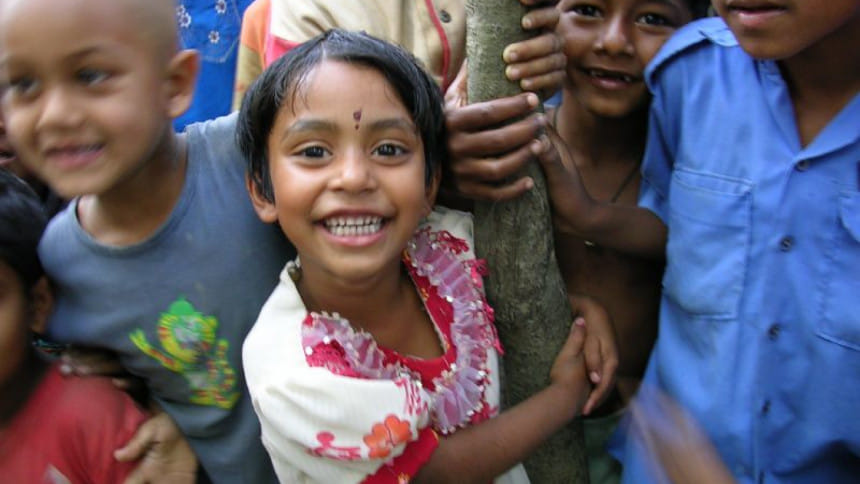Being there for children, wherever they are

This year, UNICEF is celebrating its 70th anniversary just when Bangladesh is approaching 45 years of independence. UNICEF's 70th anniversary is far beyond a milestone, it gives us the opportunity to celebrate our work for children over the seven decades. It helps us reminisce why UNICEF came into existence 70 years ago: to meet the desperate needs of children affected by World War II, to bring lifesaving aid, long-term support, and hope for children risked by conflict, crises, crushing poverty, and now increasingly, by the effects of climate change.
In 1946, UNICEF started its journey to meet the urgent needs of children affected by World War II, despite the geographical location and role of the country where they lived in during the war. With the simple words "The hope of the world rests in the coming generations" the General Assembly recommended the establishment of the United Nations International Children's Emergency Fund, UNICEF.
The organisation targeted the children at greatest risk and need, struggling to survive in the aftermath of the war and brought them life-saving humanitarian support and long-term assistance. UNICEF aimed at providing children a normal childhood and a better future. Since then, UNICEF's influence cuts across multiple sectors and the organisation stands as a symbol of hope for children everywhere -- and for every child.
Since 1952, UNICEF has had a long standing and strong partnership of trust and collaboration with the Government of Bangladesh. After its inception here, UNICEF mostly provided supply assistance in the remotest villages of the then East Pakistan for about 20 years. During the country's liberation war in 1971, UNICEF provided emergency assistance to thousands of war refugees and children.
Actively doing the "doable", UNICEF Bangladesh gradually evolved into a full-fledged development agency. UNICEF, now works with development partners, donors, civil society and the people for the survival, development, protection and participation of children and women in Bangladesh.
Bangladesh is now entering into the era of the Sustainable Development Goals, attaining remarkable achievements in many Millennium Development Goals. This includes higher enrolment and gender parity in primary and secondary schools, immunisation, child mortality - going down from 94 in 1999 to 46 in 2014 and maternal mortality from 340 in 2000 to 170 in 2013. More people now than ever have access to improved drinking water and sanitation. In all these development efforts UNICEF has been a partner with the government. Yet more effort needs to be put to addressing the causes of under-five mortality, preventing child marriage, promoting child participation, so that children have a greater say in their lives.
In the coming years, UNICEF will continue its support to advance the universal realisation of the rights of children, particularly for the most disadvantaged and excluded in Bangladesh. These include children, adolescents and their communities living in poverty and areas that are hard-to-reach or vulnerable to climate change and those from ethnic and religious minorities.
An emergency responder, a champion of child rights and a force for equitable development, UNICEF has a long record of success. Through Country Offices and National Committees, UNICEF works with partners in 190 countries and territories to advance child-friendly social policies. By celebrating UNICEF's 70th anniversary, we take the opportunity to highlight the urgent needs and the impact of our work on children and the challenges faced by them in some of the world's toughest places. We aim to save more lives and give hope to more children in need and at risk, making our work as relevant as yesterday, today and tomorrow.
Seventy years on, UNICEF has played its part worldwide in dramatically reducing child deaths and helping millions of children fulfil their potential. Yet, the cause of children has gained importance even more – and UNICEF's work for the most disadvantaged, excluded, and vulnerable children is becoming more relevant and urgent every day. We are there for children. Wherever they are. Whoever they are. Whenever they need us - now, more than ever.
The writer is the Representative of UNICEF Bangladesh.
Photo: Mark Knobil from Pittsburgh, USA (https://commons.wikimedia.org/wiki/File:Rural_Bangladeshi_children.jpg), "Rural Bangladeshi children", https://creativecommons.org/licenses/by/2.0/legalcode.

 For all latest news, follow The Daily Star's Google News channel.
For all latest news, follow The Daily Star's Google News channel. 



Comments